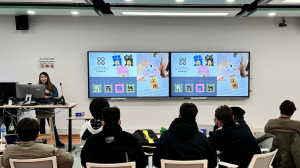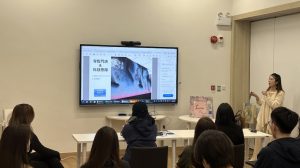Macao hosted in November a 2-day event titled ‘Creative City of Gastronomy – Macao, Shunde Food and Culture Exchange Programme’, promoting gastronomic ties between both places. The activity brought together government officials, representatives from tourism education institutions, and food and beverage industry professionals, as well as students engaged in culinary education programmes at various levels.
The exchange was jointly hosted by IFTM, Shunde Polytechnic and integrated resort operator MGM China Holdings Ltd. It was organised via the IFTM Tourism Education and Training Base for the Guangdong-Hong Kong-Macao Greater Bay Area (Shunde Collaboration Centre), established earlier this year.
A total of 3 renowned chefs from the Shunde District of Foshan city, in Guangdong Province – namely Chef Li Yongtai, Chef Sun Yongkang and Chef Liang Luming – were invited to take part in the programme. They were joined by local Macanese cuisine expert Chef Antonieta Manhão, also known as ‘Chef Neta’. The 4 chefs shared information about their respective gastronomic heritage and culinary techniques, with industry professionals and students.
Macao and Shunde are famed for their delicacies: the latter city is popular for Yue Cuisine, also known as Cantonese Cuisine. Both places are part of the UNESCO Creative Cities Network in the field of gastronomy.
The word “Macanese” refers to Macao’s Eurasian population: those among the city’s people that have ancestral ties either to Portugal or the country’s former colonies or administered territories; as well as ancestral ties to the Mainland. Over the centuries, Macanese people blended Southern Chinese and Portuguese flavours with exotic new ingredients brought by Portuguese sailors. The result is Macanese cuisine, a mix of influences from Europe, Latin America, Africa, the Indian subcontinent, Southeast Asia, and the Mainland.
The 2-day exchange took place on 16 and 17 November. It comprised a number of sessions, spread across 2 locations. Specific sessions targeted specific audiences. One example was professionals working in integrated resorts. Other examples were secondary school pupils on vocational courses; higher education students; and members of local food and beverage associations.
Throughout the programme, the guest chefs from Shunde promoted the uniqueness of their food culture, while demonstrating a range of culinary skills used in Cantonese cooking. The programme concluded with a Shunde-Macao food culture exchange, featuring a demonstration of how to prepare a few signature dishes from each place.
Shortening distances
Although Macao and Shunde are both part of the Guangdong-Hong Kong-Macao Greater Bay Area, “we are very different,” says Chef Li, also a culinary consultant at Shunde Polytechnic. “Shunde dishes are more traditional, while Macanese food is a blend of various cultures,” he says.
The veteran chef states he learned a lot about Macanese cuisine from the event. He praises the Shunde Collaboration Centre as a platform to promote exchanges linked to tourism and hospitality topics. “It is beneficial to both places: to teachers, students and to the industry,” says Chef Li. “I hope in the future we will have stronger links and the distance between cultures can be shortened.”
Chef Neta also highlights the differences between Macanese and Cantonese cuisine. “We have our own backgrounds, so this exchange provided a very good opportunity for us to learn from each other,” she says.
Chef Neta, who is Macanese, is devoted to promoting the community’s food culture. Her dishes have already earned her several accolades in culinary competitions.
“I can see many students took part in this exchange,” she says. “This was a chance for them to learn about Macanese food: it is neither Chinese nor Portuguese food,” she adds.
The Shunde Collaboration Centre is the latest extension of the IFTM Tourism Education and Training Base for the Guangdong-Hong Kong-Macao Greater Bay Area. The Shunde centre was launched in April with Shunde Polytechnic as the host institution. One of its aims is to promote cooperation regarding Cantonese and Macanese cuisine.
IFTM is assuming a significant role in assisting the development of the Greater Bay Area, by helping the tourism and hospitality industry in the city cluster to thrive. A milestone for the Institute in that regard was reached in 2019, when the national authorities approved IFTM as the unit responsible for the Tourism Education and Training Base for the Guangdong-Hong Kong-Macao Greater Bay Area.
Since then, several extensions of the Macao Tourism Education and Training Base have been set up in Guangdong Province, including in Zhuhai, Hengqin, and Guangzhou.









